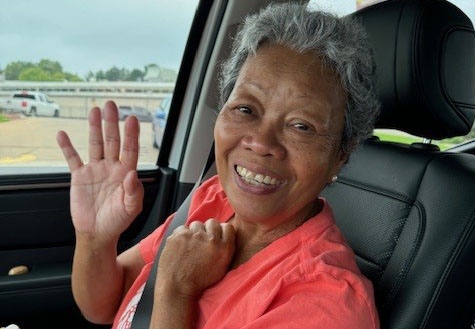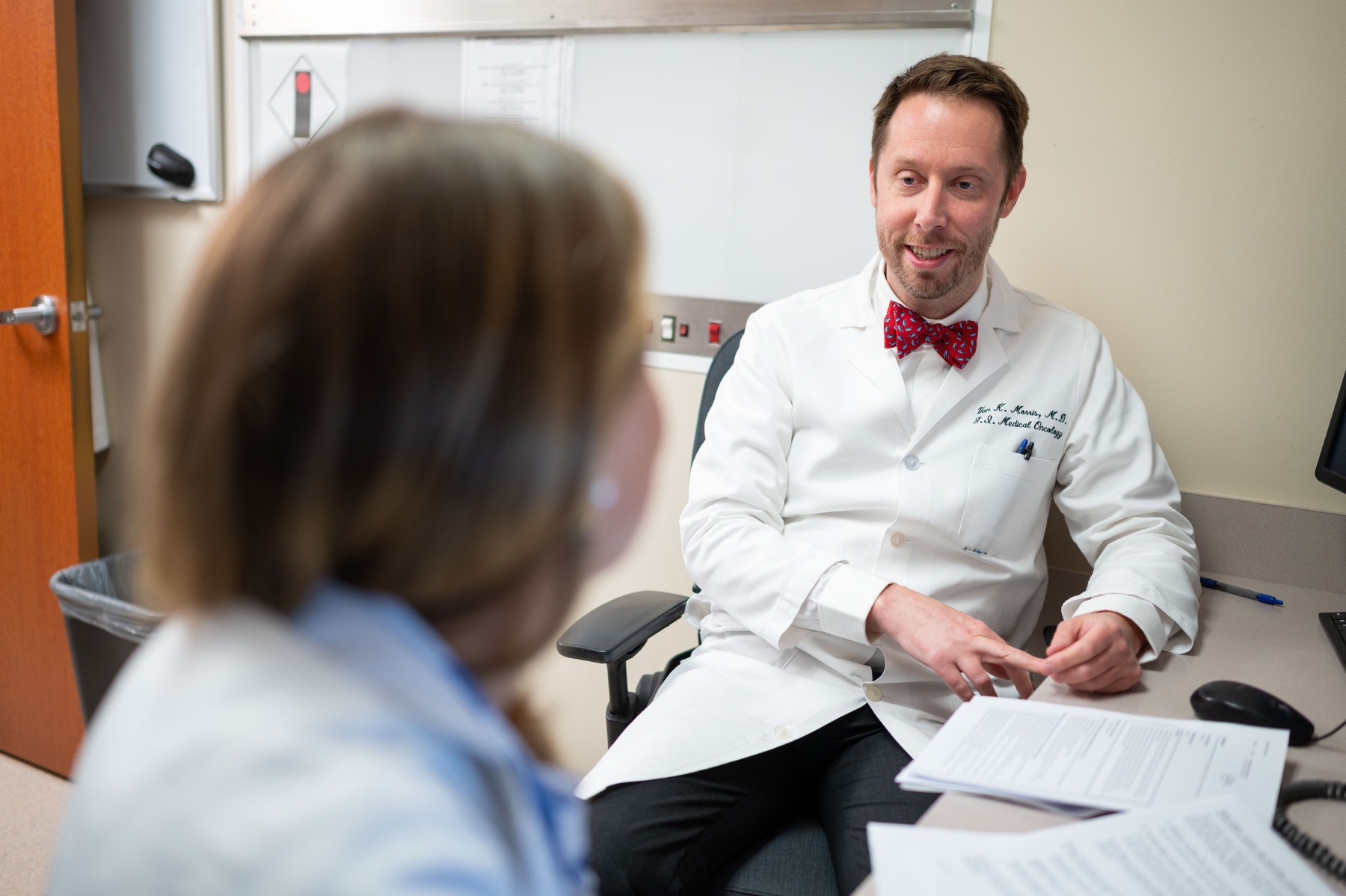- Diseases
- Acoustic Neuroma (14)
- Adrenal Gland Tumor (24)
- Anal Cancer (66)
- Anemia (2)
- Appendix Cancer (16)
- Bile Duct Cancer (26)
- Bladder Cancer (68)
- Brain Metastases (28)
- Brain Tumor (230)
- Breast Cancer (718)
- Breast Implant-Associated Anaplastic Large Cell Lymphoma (2)
- Cancer of Unknown Primary (4)
- Carcinoid Tumor (8)
- Cervical Cancer (154)
- Colon Cancer (164)
- Colorectal Cancer (110)
- Endocrine Tumor (4)
- Esophageal Cancer (42)
- Eye Cancer (36)
- Fallopian Tube Cancer (6)
- Germ Cell Tumor (4)
- Gestational Trophoblastic Disease (2)
- Head and Neck Cancer (6)
- Kidney Cancer (124)
- Leukemia (344)
- Liver Cancer (50)
- Lung Cancer (288)
- Lymphoma (284)
- Mesothelioma (14)
- Metastasis (30)
- Multiple Myeloma (98)
- Myelodysplastic Syndrome (60)
- Myeloproliferative Neoplasm (4)
- Neuroendocrine Tumors (16)
- Oral Cancer (100)
- Ovarian Cancer (170)
- Pancreatic Cancer (164)
- Parathyroid Disease (2)
- Penile Cancer (14)
- Pituitary Tumor (6)
- Prostate Cancer (144)
- Rectal Cancer (58)
- Renal Medullary Carcinoma (6)
- Salivary Gland Cancer (14)
- Sarcoma (236)
- Skin Cancer (296)
- Skull Base Tumors (56)
- Spinal Tumor (12)
- Stomach Cancer (60)
- Testicular Cancer (28)
- Throat Cancer (90)
- Thymoma (6)
- Thyroid Cancer (98)
- Tonsil Cancer (30)
- Uterine Cancer (78)
- Vaginal Cancer (14)
- Vulvar Cancer (18)
- Cancer Topic
- Adolescent and Young Adult Cancer Issues (20)
- Advance Care Planning (10)
- Biostatistics (2)
- Blood Donation (18)
- Bone Health (8)
- COVID-19 (362)
- Cancer Recurrence (120)
- Childhood Cancer Issues (120)
- Clinical Trials (628)
- Complementary Integrative Medicine (24)
- Cytogenetics (2)
- DNA Methylation (4)
- Diagnosis (230)
- Epigenetics (6)
- Fertility (64)
- Follow-up Guidelines (2)
- Health Disparities (14)
- Hereditary Cancer Syndromes (124)
- Immunology (18)
- Li-Fraumeni Syndrome (8)
- Mental Health (118)
- Molecular Diagnostics (8)
- Pain Management (62)
- Palliative Care (8)
- Pathology (10)
- Physical Therapy (18)
- Pregnancy (18)
- Prevention (898)
- Research (392)
- Second Opinion (74)
- Sexuality (16)
- Side Effects (604)
- Sleep Disorders (10)
- Stem Cell Transplantation Cellular Therapy (216)
- Support (404)
- Survivorship (322)
- Symptoms (184)
- Treatment (1776)
Learning to smile after triple-negative breast cancer treatment
BY Lany Kimmons
3 minute read | Published February 15, 2017
Medically Reviewed | Last reviewed by an MD Anderson Cancer Center medical professional on February 15, 2017
Hashmat Effendi has spent much of her life organizing teams of medical professionals from the United States to travel to various developing countries. The teams perform surgeries for children with congenital deformities and severe burns.
Though she’s used to supporting others through difficult times, she never thought that she’d be the one in need.
In September 2015, she set off for a medical mission trip to Pakistan, but this journey proved to be anything but ordinary.
The lump that led to a breast cancer diagnosis
For more than 20 years, Hashmat diligently checked her breasts for any changes. During her Pakistan trip, she did her exam in the shower. She didn’t feel anything but still had a bad feeling that something was different. She then did the exam while lying down and found a small lump. Part of her wanted to ignore it altogether. Since she has always been active, has no family history and has never taken hormones, she didn’t think it could be breast cancer.
Still, Hashmat coordinated with the local host hospital and was able to get a mammogram and then a biopsy while in Pakistan. The diagnosis was stage III triple-negative breast cancer.
Three weeks later, she returned to Houston, where she saw an oncologist who recommended chemotherapy. Her son encouraged her to come to MD Anderson for a second opinion.
Triple-negative breast cancer treatment at MD Anderson
Hashmat was impressed with the caring and supportive attitude of her MD Anderson team. “It is hard to believe everyone can be so nice,” Hashmat says. “From the surgeon to valet parking, I experienced love, peace and caring.”
Over 16 months, she underwent 16 chemotherapy infusions, 37 radiation therapy sessions and a lumpectomy.
“I realized that as normal healthy individuals, we take so much for granted, such as waking up every day full of energy,” Hashmat says. “Throughout my breast treatment, I didn’t look forward to life. At one point, I told my family to just let me go.”
But her family, friends and especially her two grandchildren provided her hope and courage when she felt she couldn’t go on. She also received support from her two dogs -- Ella, a golden retriever, and Simba, a lab and German shepherd mix. “They seemed to feel my pain,” Hashmat says. “They would lie next to me and comfort me.”
As her breast cancer treatment was coming to an end, Hashmat was nervous and didn’t feel ready to return to the world. She had lots of questions and concerns about life after cancer treatment.
A clinical trial makes Hashmat smile again
Hashmat was approached by our Integrative Medicine team about enrolling in a clinical trial for women with breast cancer who were going through radiation treatment. The trial required a total lifestyle change through counseling, nutrition and exercise guidance. The goal of the study is to look at the relationship between lifestyle factors and cancer-related outcomes, such as the risk of the disease coming back, quality of life and physical functioning.
Hashmat agreed to participate in the clinical trial and soon saw its impact on her emotional and physical well-being. “After my cancer diagnosis and before the trial, I never smiled, but during one of the counseling sessions, I realized I was smiling again,” she says.
Now Hashmat feels like a new person and calls her cancer “a blessing.” She is enjoying her life more and feels good both inside and out.
She encourages other patients to remember to take care of themselves. “You are important. Listen to your body and respect your feelings,” she says. “Don’t give up. Every day is worth it.”
Request an appointment at MD Anderson online or by calling 1-844-990-3115.
Related Cancerwise Stories

You are important. Listen to your body and respect your feelings.
Hashmat Effendi
Survivor





